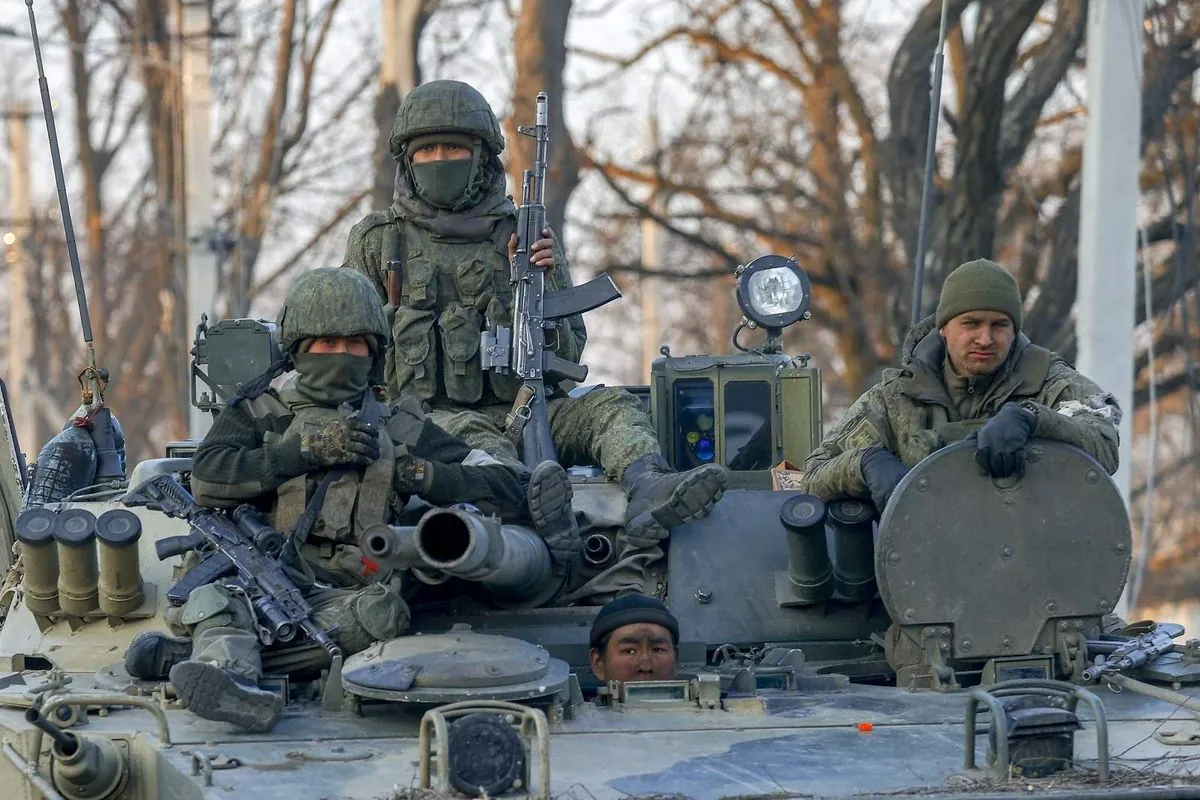Russia Expels British Diplomats Amid Tensions Over Ukraine Conflict
Russia has expelled six British diplomats, accusing them of espionage. This action comes as tensions rise over potential Western long-range weapon support for Ukraine, with Putin issuing stark warnings.

In a significant escalation of diplomatic tensions, Russia has revoked the accreditation of six British diplomats, alleging their involvement in espionage activities. This move comes at a critical juncture, preceding a crucial meeting between President Joe Biden and British Prime Minister Keir Starmer regarding potential long-range weapon support for Ukraine.
The Federal Security Service (FSB), Russia's primary security agency and successor to the KGB, accused the British Foreign Office of orchestrating an "escalation of the political and military situation" in Ukraine. The FSB claimed that the expelled diplomats posed a threat to Russian national security through their activities.
Vladimir Putin issued a stern warning regarding the potential consequences of Ukraine using Western-supplied long-range missiles to strike deep within Russian territory. He stated:
"If this decision is made, it will mean nothing other than the direct involvement of NATO states, European states, in the war in Ukraine."
Putin emphasized that such actions would fundamentally alter the nature of the conflict, potentially leading to a direct confrontation between Russia and NATO member states.
In response to Putin's remarks, Polish Prime Minister Donald Tusk advised against overreacting, suggesting that the Russian leader's statements reflect the challenging situation faced by Russian forces on the frontlines.

The ongoing conflict in Ukraine, initially planned as a swift operation, has evolved into a protracted war of attrition. Recent British intelligence estimates suggest that Russia has suffered over 610,000 military casualties since the conflict's inception.
The FSB provided details on the alleged activities of the expelled British diplomats, claiming they engaged in "spying and sabotage." An FSB officer, appearing on state television, described the diplomats' behavior as resembling "classical British spies," citing meetings with journalists from Novaya Gazeta and representatives of Memorial, a Nobel Peace Prize-winning rights group.
It's worth noting that both Novaya Gazeta and Memorial have been labeled as "foreign agents" under Russian legislation, a term introduced in 2012 to designate organizations receiving foreign funding and engaging in political activities. This designation has been applied to numerous media outlets, civil society organizations, and activists in Russia.
The expulsion of diplomats is a common form of protest or punitive action in international relations, governed by the Vienna Convention on Diplomatic Relations of 1961. This convention provides a framework for diplomatic relations between countries, including provisions for diplomatic immunity.
As tensions continue to escalate, the international community watches closely to see how this diplomatic row and the potential provision of long-range weapons to Ukraine will impact the broader geopolitical landscape and the ongoing conflict.


































